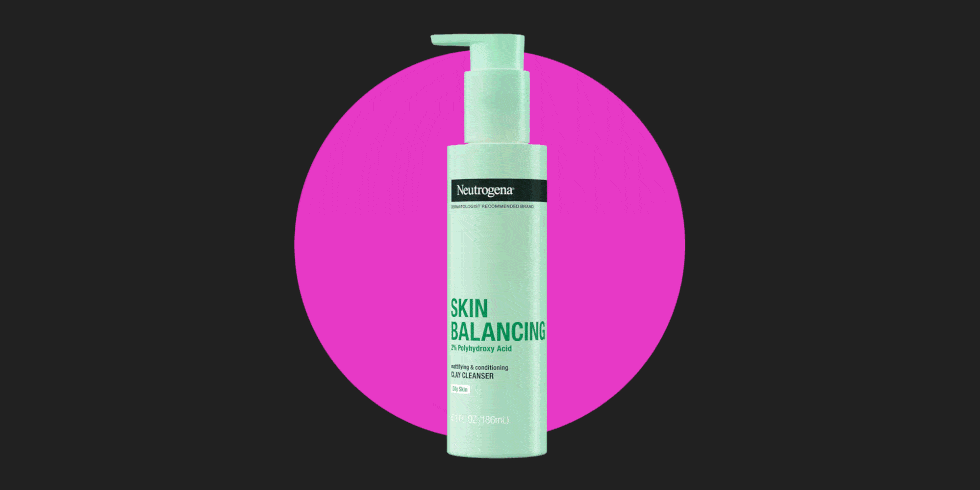
There is no “one size fits all” when it comes to skincare. Finding a regimen that works for you is like a puzzle, and all of the ingredients you use should fit together for the best results. That’s why it’s so important to personalize your skincare routine.
But where do you even start? To get a better idea of how to create a regimen that suits your skin’s needs, we spoke to New York City-based board-certified dermatologist Dr. Morgan Rabach, MD. She recommends considering these three factors before going on your next skincare shopping spree.
Know Your Skin Type
Our skin falls under specific categories, and knowing your skin type is critical to understanding how to take care of it properly. “Pick ingredients in your skincare that maximize the health and beauty of your skin,” Dr. Rabach says.
Here’s Dr. Rabach’s cheat sheet on the four core skin types:
- Acne-prone/oily skin: Avoid oil-based products and turn to polyhydroxy acids (PHAs) to slough away dirt, excess oil, and gently exfoliate. Retinols can also help to deeply exfoliate, but talk to your derm before throwing one into your routine.
- Sensitive skin: Look for products that are free of sulfates, parabens, soap, phthalates, alcohol, and dyes.
- Dry skin: Avoid drying alcohols and astringents and focus on moisturizing ingredients like hyaluronic acid, glycerin, and ceramides to help pull hydration into the skin and keep it there.
- Combination skin: If you have a combination of the skin concerns above, target those areas separately. It takes a little more time, but it’s worth it!
To make shopping for your skin type even easier, Neutrogena has come out with three new cleansers with unique formulas designed just for dry/sensitive, oily, and combination skin. Take note of the 2 percent polyhydroxy acid on all three ingredient lists: PHA is a gentler alternative to the commonly used alpha hydroxy acids (AHAs) that are often packed into skincare to help slough away dead skin cells. It’s really next-level skincare, from the ingredient list to the formulation—all you have to do is grab the one that best matches your skin and start cleansing.
Evaluate Your Lifestyle
- Advertisement - scroll to continue -
Are you staring at a computer screen all day for work? Do you run every morning? Do you like to go out every weekend? Your lifestyle plays a significant role in what products you should be using in your routine.
The first thing Dr. Robach says to think about is how much sleep you get. While everyone should be aiming to get anywhere between seven to eight hours of sleep, we know it can be hard to do on a consistent basis. “There are products that are like [boosters] for the skin, helping the skin repair itself better even with little sleep,” she says. You’ll want to do some research on products that are packed with antioxidants and growth factors—they’re what help support collagen production, the stuff that makes your skin look plump and healthy.
Another thing to consider is how much exposure you’re getting to blue light. Also known as high-energy visible (HEV) light, blue light is emitted through phones, tablets, and computers and can penetrate skin deeper than UVB or UVA rays. Studies show that blue light can accelerate the appearance of fine lines and hyperpigmentation.
“Blue light causes stress in the skin cells leading to oxidative stress, a process that creates free radicals in the skin and damages collagen and elastin,” Dr. Rabach says. “Products with antioxidants work by targeting and neutralizing free radicals.”
To get ahead of HEV exposure, try limiting your screen time when possible, keep your phone on night mode, and pop a mineral-based SPF onto the most exposed areas, like your face and neck—yes, even indoors in front of your computer!
And, no matter what type of day you’ve had, never go to bed with your makeup on. You will regret this move 100 percent of the time. Trust us when we say it’s well worth it to take the extra 30 seconds to grab your cleanser and wash up. Your skin will thank you.
See a Dermatologist
When it comes to skin health, your best resource is going to be your dermatologist. “[Dermatologists] can help you mix and match ingredients to maximize skin health and minimize interactions or side effects,” says Dr. Rabach. They can give you a rec for anything from prescription acne treatments to drugstore cleansers, so don’t be shy about asking.
Make sure to share anything and everything that can help them develop a routine best suited for your skin. Think: a family history of skin cancer, your current hectic lifestyle, or present medical conditions. They’ll take all of these important factors into consideration when helping you develop a regimen. And once you have one, it’s up to you to use it consistently in order to see your best results.
This content is created and maintained by a third party, and imported onto this page to help users provide their email addresses. You may be able to find more information about this and similar content at piano.io
Visit our friends at elle.com


